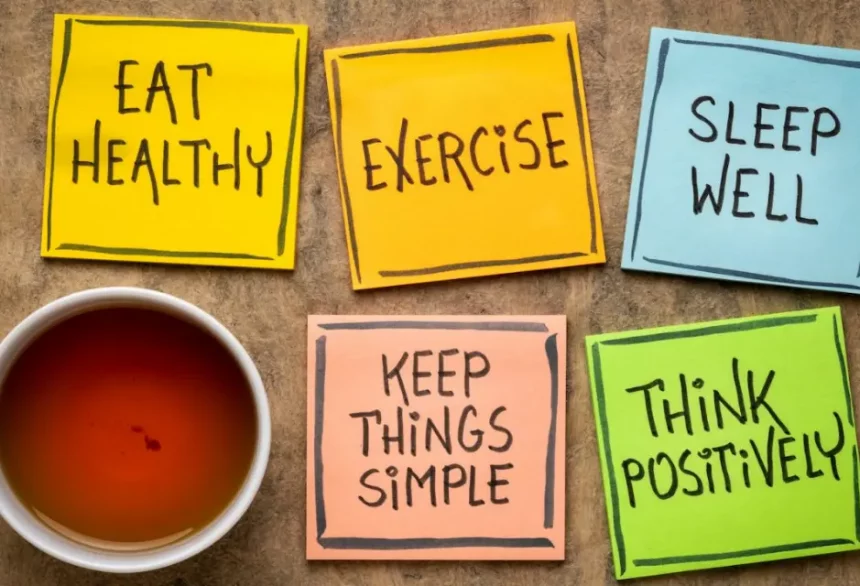Mental health is just as important as physical health and should be given the same attention. Unfortunately, many of us find it difficult to prioritize our mental wellness, often leaving us feeling overwhelmed and stressed out. Fortunately, there are many easy and accessible ways to take care of our mental health.
In this article, we’ll be looking at four simple steps to de-stress and take care of your mental health. From practicing mindfulness to setting realistic goals, these steps will help you to reduce stress, gain clarity, and lead a more balanced life. Taking time to pause and focus on our mental health can make all the difference in providing us with the strength and resilience to take on life’s challenges. So, let’s get started on our journey to a healthier and happier life.
1. Understand stress and your mental health
Stress can be described as our body’s reaction to feeling overwhelmed or being unable to cope with our environment or circumstances. It can be both positive and negative, but when it’s too high and we don’t manage it well, it can have a negative impact on our mental health. Mental health is more than just the absence of mental illness. It’s the ability to live a fulfilling life, free from emotional and mental struggles.
It encompasses both our psychological wellbeing (e.g. our self-esteem and confidence) and our social wellbeing (our ability to relate to others). People who have a strong and healthy psychological foundation are less likely to face challenges with their mental health. For example, someone with high self-esteem will be less likely to experience feelings of depression or anxiety than someone with low self-esteem.
2. Practice mindfulness
Mindfulness is a technique that trains us to take a moment to focus on the present moment and our current state of being. It’s proven to be beneficial for everyone, but especially those who suffer from anxiety and depression. By practicing mindfulness, you will be able to regulate your emotions and thoughts, as well as achieve clarity in your decisions and direction in life.
There are many different ways you can practice mindfulness. You can try meditating, going for a walk outside, or focusing on your breath. Whatever your chosen method, the goal is to focus your attention on the present moment, with no judgment and no expectations. When you make time to be present in the moment, you will be less likely to dwell on the past or worry about the future. Furthermore, you’ll be able to identify negative thought patterns, such as the black-and-white thinking in anxiety,
so that you can change them.Once you have built a consistent practice, you will experience a more clear and balanced mental state. You will also be able to utilize mindfulness in stressful situations, such as in a meeting or when an argument breaks out, so that you can regain control of your emotions and thoughts.
3. Set realistic goals
As humans, we are goal-oriented creatures. We like to know what we are working towards and how we are getting there. Unfortunately, for many of us, our goals can sometimes be too lofty, causing us to be stressed and setting us up for failure. If you find yourself stressed, frustrated, or overwhelmed, consider whether your goals are too lofty.
If so, write down new, more realistic goals to replace them. This will help you to clear your mind and focus on what you can achieve, rather than what’s outside of your control. As you move forward in life, you will inevitably encounter obstacles and challenges. It’s important to remember that these are a normal part of life and that you have the ability to overcome them.
By having realistic goals and setting manageable expectations for yourself, you will be able to progress through life with confidence, rather than being bogged down by stress and anxiety.
4. Prioritize self-care
Whether you suffer from stress, anxiety, or another mental health issue, prioritizing self-care is a surefire way to take care of your mental health. However, what exactly does self-care entail? Self-care is any activity that makes you feel relaxed and cared for, whether it’s listening to your favorite podcast, meditating, or going for a long walk in nature. There are plenty of ways to practice self-care, and you can do so in any way or combination that works for you. Taking time for self-care is not a luxury, it is a necessity. Without it, you will eventually burn out.
By practicing healthy self-care, you will be able to recharge and gain the strength and resilience to take on your challenges. Self-care is something you can do regardless of your mental health. While it’s important to be aware of your mental health and do whatever you can to look after it, it’s also important not to let your mental health define you. No matter what’s going on in your life, you deserve to take care of yourself and have time to do the things that make you happy.
5. Use outside resources
If you are struggling with a mental health issue or feeling overwhelmed and stressed, you do not have to do it alone. There are many support systems and outside resources that can help you take care of your mental health. These include: Counseling, therapy, support groups, apps, books, and online forums.
Regardless of how you approach it, taking the first step towards help will provide you with clarity and ensure that you are able to take care of your mental health. Mental health issues can be a scary and challenging journey, but it is one that is worth taking. By following these four steps, you will be able to take care of your mental health and lead a healthier and happier life.










